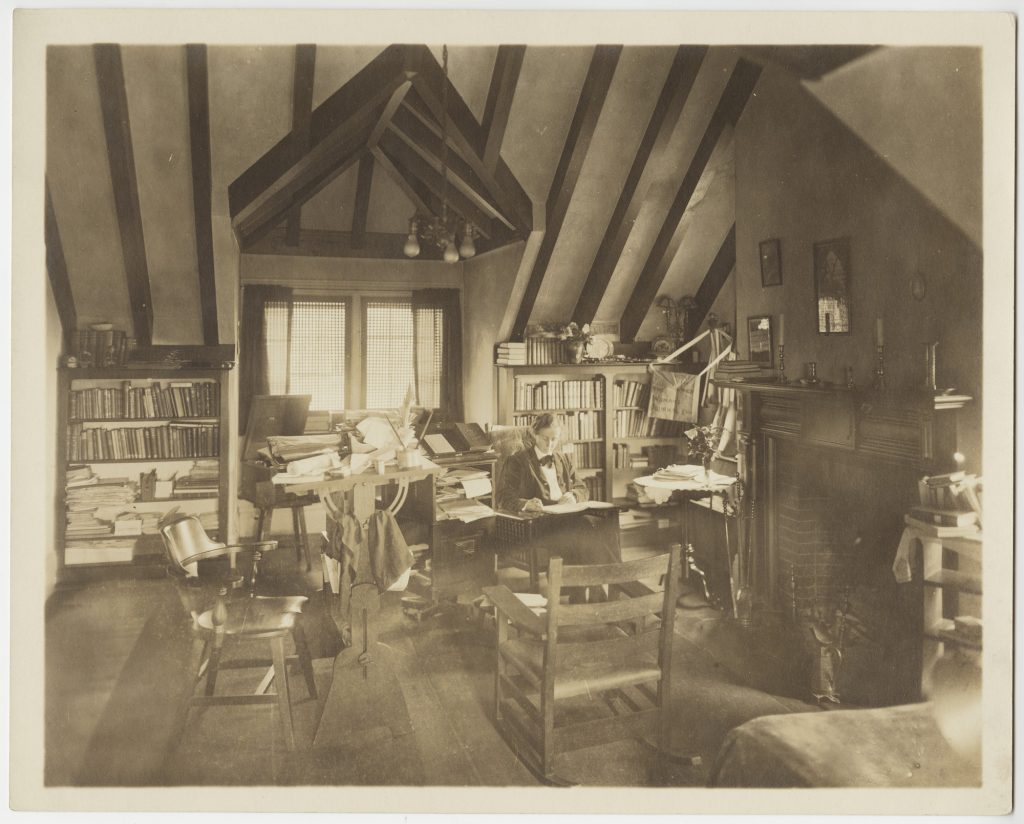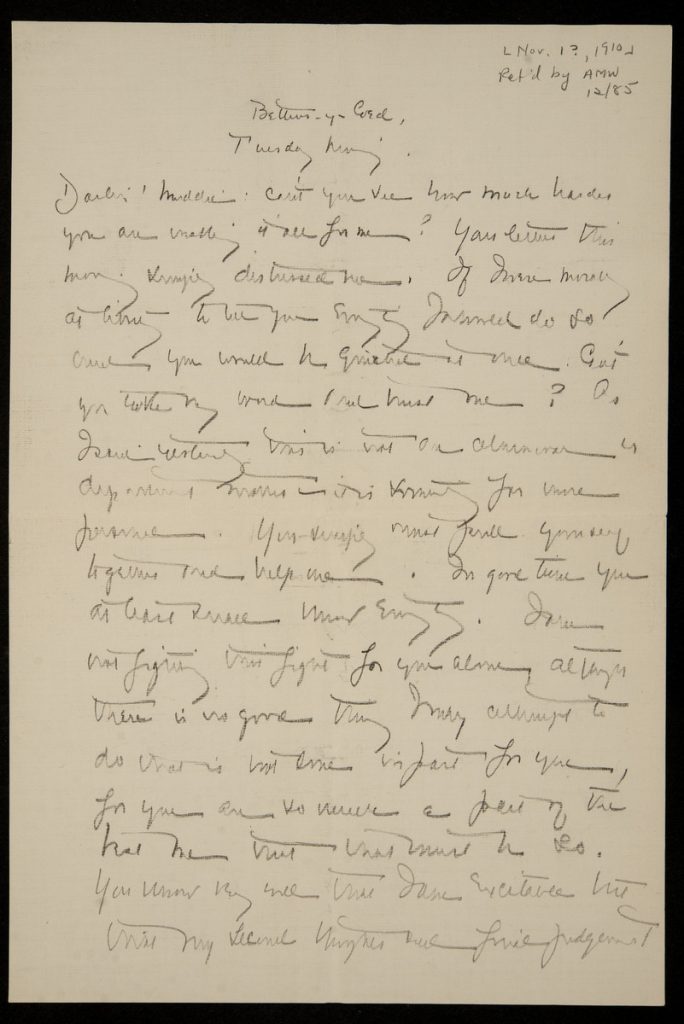“I am wrapt up by the three-fold of conscience, honor and love. Let me find you strong; stay on your pedestal, darlin’ Muddie, and so will you be helping me most.” – Excerpt from this letter, sent by Jeannette Marks to Mary Woolley on November 1, 1910 (Read the full transcription)
Due to a vacancy in the English department, Marks took over as interim department chair for a number of semesters between 1907 and 1909. She took a half year’s leave in 1908 as well as a full year’s leave in 1909-1910 for her health and in order to work on her writing. Her publication rate began picking up pace and prestige.
Unkind reviews following the publication of an adapted version of her master’s thesis sent Marks into a fit of illness, both psychologically and physically. Woolley’s position was advancing at a fine clip in her own fields; elected to the vice presidency of the American Peace Society, senator to Phi Beta Kappa, and the Y.W.C.A’s national board.
Her fundraising ability, famed already, also provided considerable aid for many projects and departments on campus, including the notable construction of the President’s House. The house was constructed across the street from Mary Lyon Hall, the center of administration at Mount Holyoke College. Marks and Helen Cady abandoned the Green Pea in 1909 to live with Woolley in the 4-bedroom house, finally fulfilling Marks’ dream of sharing a home with Woolley.

The third floor became Marks’ haven. Dubbing the space “Attic Peace,” she transformed the rustic, rafter-filled attic into her personal study, living room, and occasional instructional space.
Marks applied for a leave of absence for the 1909-1910 school year in order to work on her writing career. This frustrated her colleagues in the English Literature department, who insisted that this light treatment of absence and poor performance was an instance of favoritism shown by the President. Marks writes in this letter:
“What you report to me about the college does not reassure me although it does not disturb me. People usually get something of what they deserve and no doubt I deserve in part all the vindictive and vicious criticism that has followed me. But there has been so much of it and for so long that I feel almost entirely indifferent. As an institution and because it is your work I feel an interest in the College, but I must find the best part of my life elsewhere.”
